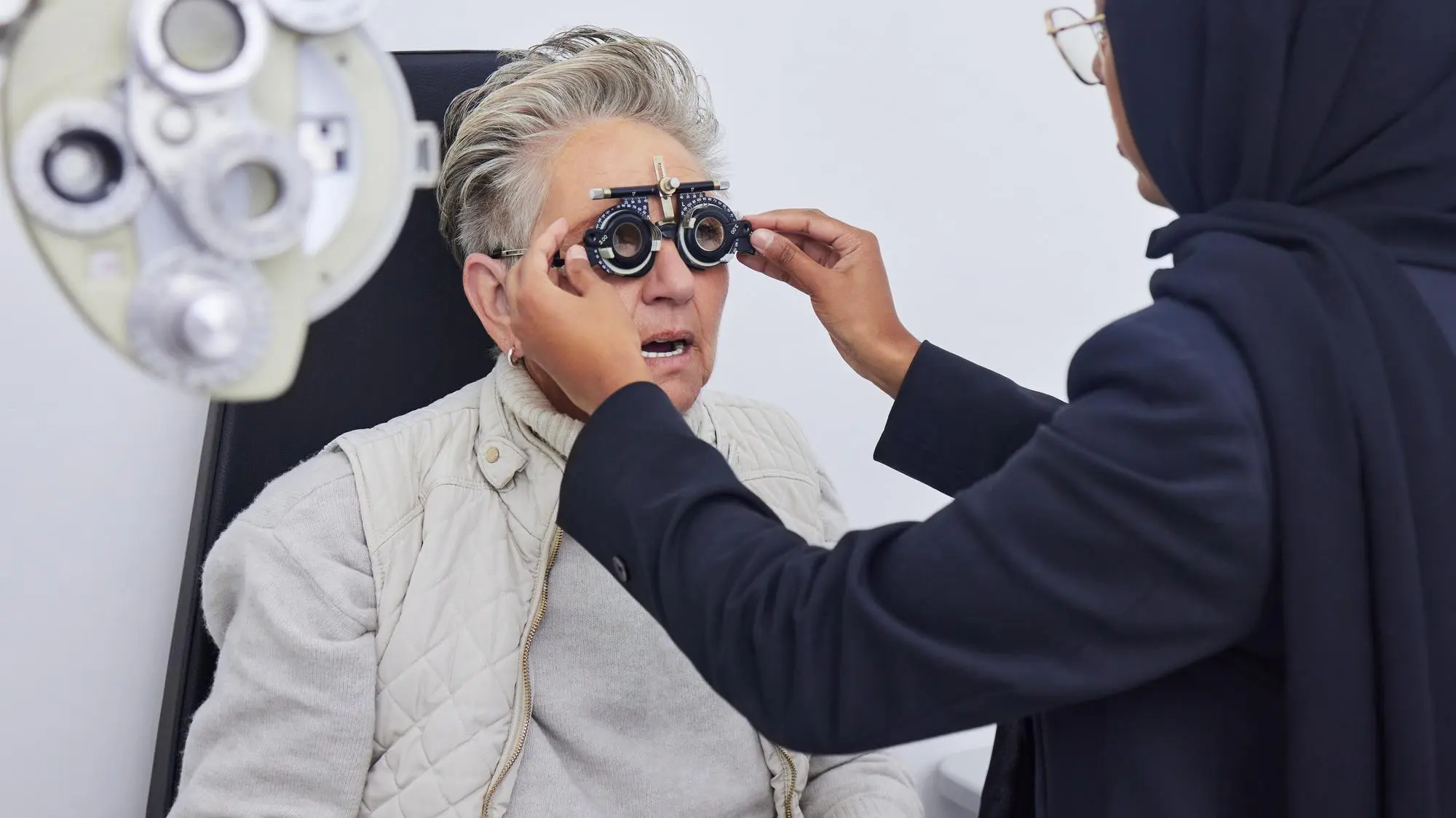Cause of double vision in elderly adults - and how to alleviate your symptoms
19 Apr 2024

As we grow older, our bodies are likely to undergo some changes, including to our eyesight. It's common for older adults to develop double vision as they age. In this article, we'll explore the causes behind double vision in the elderly as well as treatment options you can try.
What is double vision?
Double vision, also known as diplopia, is a condition in which someone sees two images of a single object. It is a common and temporary condition people of all ages may experience, particularly older adults; however, some cases may require medical attention. If you have diplopia, you may also experience other symptoms, including blurred vision, headaches, dizziness, difficulty with depth perception, and nausea.
There are two types of double vision: monocular and binocular. Monocular double vision occurs in one eye, whereas binocular diplopia causes double vision when both eyes are open. To determine which diplopia you have, close each eye separately and look at your surroundings. If you see double vision with only one eye open, you likely have monocular double vision.
What causes double vision in the elderly?
Changes to the structure of our eyes, as well as common health conditions that may or may not be related to aging, can cause diplopia. The most common causes of double vision include:
Cataracts. Cataracts are a medical condition that causes your eye lenses to become cloudy. This cloudiness can blur your vision and lead to monocular double vision.
Dry eyes. Dry eye syndrome can occur if your body doesn't produce enough tears, or if your tears evaporate too quickly. This can cause irritated, blurred eyes, or monocular double vision if not treated with eye drops.
Diabetes. When their blood sugar isn't regulated, individuals with diabetes may experience blurred vision. Although blurred vision is typically temporary, uncontrolled diabetes long-term can lead to nerve damage in the eye muscles, leading to binocular diplopia. Adopting a low-carb diet can help in such conditions.
Myasthenia gravis. This is a rare condition that causes weak muscles and damaged junctions. If you have it, you may experience binocular double vision because your brain may not be able to deliver signals to your eye muscles correctly.
Medication side effects. It's common for older adults to take multiple medications. Double vision may be a side effect from specific medications. Before taking a new prescription, make sure to read the possible side effects and speak with your doctor if you experience any blurry vision.
Treatment options for double vision in seniors
To determine if you have diplopia, your doctor will likely perform a physical exam and may ask you to see an eye specialist. Depending on if you have monocular or binocular diplopia, you may need additional testing such as a blood test, or an MRI or CT scan.
If you're experiencing double vision, you should schedule an appointment with your doctor to discuss treatment options. Do not attempt any treatments without proper advice from a medical professional.
Below are the most common treatment options for diplopia:
Corrective lenses - You may be able to correct your double vision using prism corrective eye lenses. The lenses' prism can help align both images so that you see only one instead of two. Especially if your double vision is temporary, your doctor may recommend that you try contacts or glasses.
An eye patch - Using an eye patch over one of your eyes may reduce blurry vision and diplopia. This may be a good treatment option for you if you have another eye condition or a detached retina.
Eye physical therapy exercises - Eye exercises are a possible treatment that can help you control your eye movements and improve muscle coordination in your eyes. There are a variety of exercises you can try to reduce double vision, from pen-to-nose convergence to dot cards or stereograms.
Surgery - Surgery can sometimes be the best option to help reduce double, blurry vision. For example, cataract surgery removes the foggy lens in your eye and replaces it with an artificial one, leaving you with clear vision.
Tips for preventing double vision in the elderly
To prevent double vision, it's important for you to go in for routine eye exams and communicate with your doctor if you experience any vision changes. However, you can also try the below tips at home to prevent diplopia:
Take screen breaks - If you are on your computer or read from a tablet often, make sure to take periodic breaks to give your eyes a rest.
Soothe dry eyes- Older adults typically produce fewer tears as they age. To keep your eyes moist and clean, use eye drops periodically.
Wear UV protection glasses- Wearing UV protection glasses when you're out in the sun can help protect your eyes from developing cataracts.
Eat a healthy diet- Eating a diet that is rich in whole foods like proteins, fruits, and vegetables may support eye health.
A healthy lifestyle is easy with Meal Village
Whether double vision makes it difficult to cook or you want support eating well for your overall health, Meal Village is here. At Meal Village, you can receive nutritious, delicious, ready-to-eat meals right at your doorstep. With more than 130 weekly recipes, you can find meals that suit your diet and your taste buds. Plus, there are no commitments or subscriptions just place an order over the phone or online.



